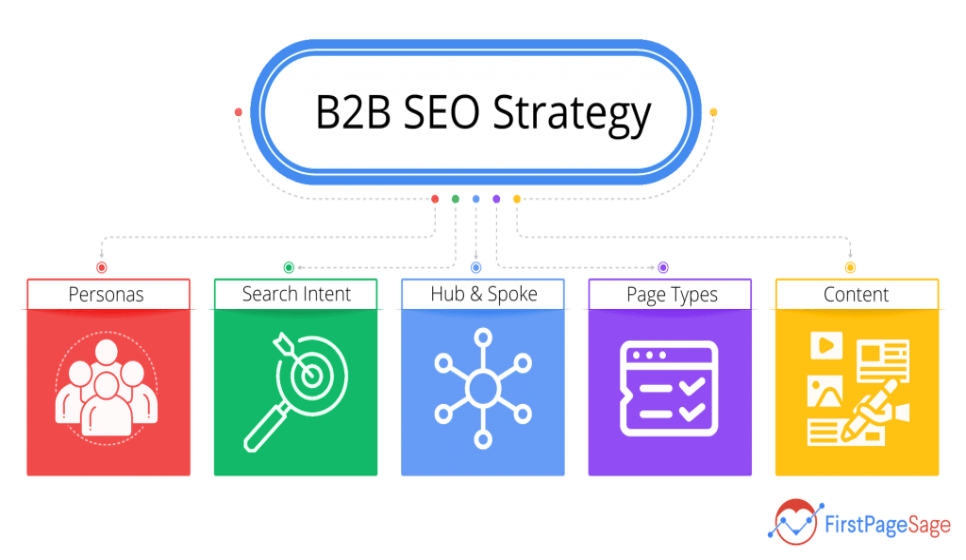
28
DecThe Role of SEO in B2B Marketing
Understanding the Importance of SEO in B2B Marketing
SEO (Search Engine Optimization) plays a critical role in improving the online visibility of businesses in the B2B sector. For B2B companies, SEO helps attract targeted traffic, generate leads, and establish authority in competitive industries. A strong SEO strategy aligns with business goals by ensuring potential clients can find your services and solutions through relevant search queries.
What is SEO in B2B Marketing?
SEO in B2B marketing focuses on optimizing a company's website and content to rank higher in search engines. This ranking improves visibility among businesses searching for products, services, or solutions. Unlike B2C, B2B SEO targets decision-makers, such as executives or managers, whose purchasing decisions often involve significant investments and long research cycles.
Why is SEO Essential for B2B Marketing?
Boosts Online Visibility
Many B2B customers rely on search engines to research potential vendors. SEO ensures your website appears at the top of search engine results pages (SERPs), making your business easy to discover.Enhances Credibility
Ranking higher in search engines builds trust. B2B buyers often view top-ranking companies as more credible and reliable.Generates High-Quality Leads
SEO targets users actively searching for solutions. By optimizing for specific keywords, you attract leads more likely to convert into clients.Improves ROI
Organic traffic generated through SEO is cost-effective compared to paid advertising. B2B companies benefit from long-term results and better ROI when investing in a robust SEO strategy.Key Components of a B2B SEO Strategy
To make the most of SEO in B2B marketing, businesses should focus on the following areas:
1. Keyword Research
Identify industry-specific keywords that decision-makers search for. Use tools like Google Keyword Planner or Ahrefs to find high-volume, low-competition terms. Include long-tail keywords to target niche audiences effectively.
2. Content Creation
Develop high-quality content, such as blog posts, case studies, and whitepapers. Ensure the content addresses pain points, educates the audience, and includes keywords naturally.
3. On-Page Optimization
Optimize title tags, meta descriptions, and headers for search engines. Incorporate primary and secondary keywords while maintaining readability.
4. Technical SEO
Ensure your website is fast, mobile-friendly, and easy to navigate. Use tools like Google Search Console to fix broken links, optimize crawlability, and improve your site's overall health.
5. Backlink Building
Earn high-quality backlinks from reputable websites in your industry. Backlinks signal authority to search engines, boosting your rankings.
6. Local SEO
For businesses targeting local clients, optimizing for location-specific keywords and maintaining an accurate Google My Business profile is crucial.
Challenges in B2B SEO
Long Sales Cycles
B2B sales often take months, requiring content that supports prospects throughout their journey.Complex Decision-Making Processes
Multiple stakeholders are often involved, making it essential to create content that resonates with varied audiences.Highly Competitive Keywords
Many industries have stiff competition for common keywords, requiring creative and strategic optimization.Tips to Excel at SEO in B2B Marketing
- Focus on Intent: Understand the intent behind keywords. For example, use “best CRM software for small businesses” instead of generic terms like “CRM software.”
- Leverage Analytics: Regularly review website analytics to track performance and adjust strategies accordingly.
- Create Evergreen Content: Publish content that remains relevant over time, ensuring long-term traffic and engagement.
- Collaborate Across Teams: Align your SEO efforts with sales and marketing teams to deliver a cohesive strategy.
The Future of SEO in B2B Marketing
As search engine algorithms evolve, SEO will become even more important in B2B marketing. Emerging trends include:
- Voice Search Optimization: Tailoring content for voice-activated searches.
- AI-Driven Tools: Using AI for advanced keyword analysis and content recommendations.
- Video SEO: Optimizing videos for search engines as video content becomes increasingly popular.
- Focus on User Experience (UX): Ensuring websites are user-friendly to retain visitors and reduce bounce rates.
Conclusion
The role of SEO in B2B marketing cannot be overstated. By implementing a targeted and well-researched SEO strategy, businesses can attract high-quality leads, establish authority, and stay ahead of competitors. In today’s digital-first world, SEO remains a cornerstone of successful B2B marketing strategies.
Outbound Link:
Inbound Links:
- How to Perform Keyword Research
- Best Practices for Writing SEO Content
- Benefits of Local SEO for Businesses
- Understanding Backlink Building for SEO
Order Best Targeted B2B Lead Generation Services for LinkedIn Leads